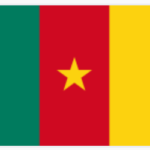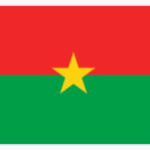Burundi is a small but fascinating country in East Africa. It is one of the few countries in Africa whose borders were not determined by colonial powers, but rather by its own history as a kingdom. Burundi has a rich and diverse culture, influenced by its ethnic groups, languages, religions and traditions. In this blog post, we will explore some interesting facts about Burundi and its people.
Geography and climate
Burundi is a landlocked country, meaning it has no access to the sea. It is located in the Great Rift Valley, where the African Great Lakes region and East Africa meet. Burundi is bordered by Rwanda to the north, Tanzania to the east and southeast, and the Democratic Republic of the Congo to the west. Lake Tanganyika, the second deepest lake in the world, lies along its southwestern border.
Burundi has a hilly and mountainous terrain, with an average elevation of 1,700 meters above sea level. The highest point is Mount Heha, at 2,670 meters. Burundi has a tropical climate, with two rainy seasons and two dry seasons. The average temperature is 20°C, but it varies depending on the altitude and the season.
History and politics
Burundi has a long and complex history, dating back to at least the 16th century, when it was an independent kingdom ruled by a mwami (king). The kingdom was divided into several provinces, each with its own chief and army. The kingdom expanded its territory through wars and alliances with neighboring kingdoms, such as Rwanda and Buganda.
In the late 19th century, Burundi became part of German East Africa, a colony that also included Rwanda and Tanzania. After World War I, Burundi was transferred to Belgium as part of the League of Nations mandate of Ruanda-Urundi. The Belgians administered Burundi and Rwanda as separate entities, but they favored the Tutsi minority over the Hutu majority, creating ethnic tensions that would later erupt into violence.
Burundi gained its independence from Belgium on July 1, 1962. It initially had a constitutional monarchy, with Mwambutsa IV as the king. However, political instability and ethnic conflicts soon led to a series of coups, assassinations and civil wars that plagued the country for decades. The most devastating conflict was the Burundian Civil War (1993-2005), which killed an estimated 300,000 people and displaced millions more.
In 2005, after years of negotiations and international intervention, Burundi adopted a new constitution that established a power-sharing system between the Hutu and Tutsi groups. The constitution also created a bicameral parliament, composed of a Senate and a National Assembly, and an executive branch headed by a president. The current president is Evariste Ndayishimiye, who took office in June 2020.
Culture and society
Burundi has a population of about 13 million people, making it one of the most densely populated countries in Africa. The majority of the population belongs to the Hutu ethnic group (85%), followed by the Tutsi (14%) and the Twa (1%). The Twa are an indigenous pygmy people who live mainly in the forests and mountains. All three ethnic groups speak Kirundi, the national language, as well as French and English, which are official languages.
Burundi is predominantly a Christian country, with about 93% of the population identifying as such. Most Christians are Roman Catholics (64%), followed by Protestants (25%) and other denominations (4%). About 4% of Burundians practice traditional African religions, while 2% are Muslims.
Burundians have a rich and diverse culture, characterized by their music, dance, art, cuisine and sports. Music and dance are especially important aspects of Burundian culture, as they express their emotions, history and identity. One of the most famous musical instruments in Burundi is the ingoma (drum), which is used for ceremonies, rituals and celebrations. The drummers of Burundi are renowned for their synchronized rhythms and acrobatic movements.
Burundian cuisine is influenced by its geography and climate. It consists mainly of staple foods such as beans, cassava, maize, plantains and sweet potatoes. Meat is not very common due to its high cost and scarcity. Some of the typical dishes include ubugari (a paste made from cassava or maize flour), isombe (cassava leaves cooked with palm oil and peanuts) and ndagala (small fish from Lake Tanganyika).
Burundians are also passionate about sports, especially football (soccer), which is the most popular sport in the country. The national football team is known as the Swallows (Intamba mu Rugamba) and has qualified for the Africa Cup of Nations twice, in 2019 and 2021. Other popular sports include basketball, volleyball, athletics and cycling.








